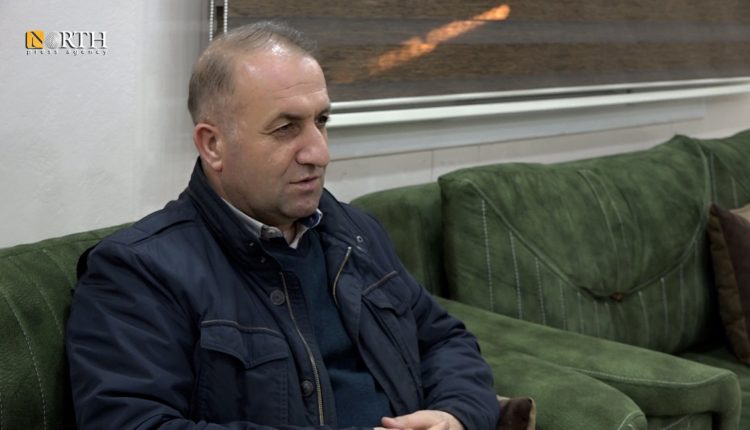Badran Jia Kurd Highlights Kurdish Political Unity as Strategic Necessity for Syria’s Future
By Kardo Roj
QAMISHLI, Syria (North Press) – A senior official from the Autonomous Administration of North and East Syria (AANES) emphasized on Saturday that unifying the Kurdish political discourse is both a “strategic and urgent necessity” for the future of Syria, as more than 400 Kurdish political, social, and community leaders gathered in Qamishli for the Kurdish Unity Conference.
Badran Jia Kurd, Deputy Co-chair of the Executive Council of AANES, stated that bridging divisions within the Kurdish political spectrum would generate a stronger and more effective force capable of influencing Syria’s evolving political landscape. His remarks came through a statement posted on the social media platform X (formerly Twitter) following the event.
“This conference marks a historic step toward correcting critical mistakes that cost the Kurdish people numerous historical opportunities,” Jia Kurd wrote, emphasizing the broader implications for Syria’s democratization process and regional stability.
Held in the de facto capital of the Autonomous Administration, the Kurdish Unity Conference aimed to address longstanding political fragmentation among Kurdish actors. Participants included political representatives, tribal leaders, academics, and members of civil society, reflecting a broad commitment to strengthening internal cohesion at a pivotal time for Syria.
Jia Kurd highlighted that a unified Kurdish stance would not only serve Kurdish interests but also contribute to forging a democratic, inclusive political system for all Syrians. He argued that resolving the Kurdish issue in Syria is integral to achieving lasting peace and stability, cautioning that continued marginalization would prolong the country’s suffering and political turmoil.
“The unification of Kurdish political discourse must be seen as a source of hope and reassurance for all Syrians, not a cause for fear or hesitation,” he noted, framing Kurdish unity as an essential component of Syria’s broader national reconciliation.
The Kurdish-led Syrian Democratic Forces (SDF), the main security partner of the AANES, have played a crucial role in ensuring stability in the northeast by combating Islamic State (ISIS) remnants and maintaining order in a highly volatile environment. The region’s relative calm contrasts sharply with areas in northern Syria controlled by factions backed by external actors, where ongoing security challenges continue to impede recovery and governance efforts.
Jia Kurd’s comments come at a time when the region faces mounting pressures, including from shifting international alliances and ongoing Turkish military threats against AANES-held territories. Within this context, a cohesive Kurdish political front is seen as vital for navigating the complex geopolitics of the Syrian conflict and safeguarding hard-won achievements in governance, security, and community resilience.
By framing Kurdish political unity within the larger struggle for a democratic Syria, Jia Kurd’s message resonated beyond Kurdish constituencies. He called for greater solidarity among all Syrian communities, suggesting that cooperation among diverse groups is the only viable path to ending fragmentation, confronting shared challenges, and building a just political order.
He further warned that without a durable resolution to the Kurdish issue, aspirations for democracy, justice, and human rights across Syria would remain unattainable.
Looking ahead, the success of initiatives like the Kurdish Unity Conference could have profound implications for Syria’s political future. A more coordinated Kurdish political movement, operating within the framework of the AANES, is likely to strengthen demands for decentralized governance and inclusive political reforms at national negotiations.
As regional dynamics continue to evolve, the Autonomous Administration and the SDF are poised to remain key actors not only in maintaining security but also in promoting democratic solutions for Syria’s long-troubled political landscape.

